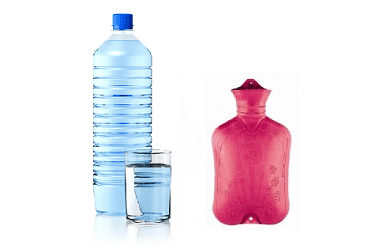Medical procedures >>>> Blind probing (probeless sensing)
Blind probing (probeless sensing).

Blind probing or probeless sensing is a medical procedure designed to empty the gallbladder while stimulating bile secretion. The opinion that it is possible to "cleanse the liver" with the help of blind probing is erroneous. In fact, the procedure has exclusively medical indications and many contraindications. For this reason, at home blind probing is indicated only with the permission of a doctor.
Blind probing is used in cases of treatment of hypotonic biliary dyskinesia. The essence of its implementation is as follows:
- In case of violations of the outflow of bile, the patient experiences pain or a feeling of heaviness in the liver (in the right hypochondrium), in order to alleviate his condition, the outflow of bile is stimulated. In addition, stagnation of bile provokes not only poor digestion, but also stone formation in the gallbladder, in order to avoid this, they carry out probeless sensing from time to time.
- The procedure requires a certain state of the patient (after sleep without getting out of bed and on an empty stomach).
- For the correct procedure and to obtain the expected results at night, limit fluid intake (so as not to provoke night and morning trips to the toilet).
- A person slowly drinks a glass of mineral water without gas, preheated to a warm state (carbonated mineral water can be degassed by opening the bottle at night), rosehip infusion (or an infusion of choleretic herbs), lies on the right side on a warm heating pad, turning without sudden movements and slightly bending your legs.
- The procedure lasts from 45 minutes to an hour and is considered effective if you have more bowel movements than usual during the day.
- A heating pad is used to relieve spasm of the biliary tract and stimulate blood flow.
After the blind probing procedure, you can eat in half an hour. The diet after performing probeless sensing should include plenty of fluids and a diet appropriate for the disease. Fasting or malnutrition after blind probing should not be tolerated.
Contraindications to blind probing are pain symptoms, cholelithiasis, diseases of an infectious or other etiology in an acute condition, exacerbation of chronic diseases (especially diseases of the pancreas, liver, gastrointestinal tract).

Read

Read



























